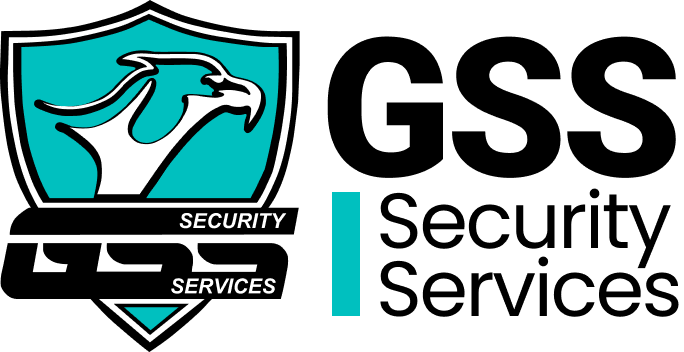Any successful company is mostly dependent on trust and safety. Whether you run a big worldwide company or a startup, you have to make sure your staff, customers, and stakeholders live in safe surroundings. For companies trying to protect their operations and build confidence on all levels, professional corporate security services are a fundamental answer.
This article investigates the value of corporate security services, analyses the several kinds of services that are offered, and emphasises how these solutions might safeguard assets, guarantee safety, and establish credibility both inside and outside of the company.
Why Corporate Security is Non-Negotiable
Every company, no matter how small, runs within a complicated landscape of risks. From corporate data leaks to workplace violence and physical theft, risks are getting more complex daily. Ignoring these hazards could have major effects, including operational downtime, financial loss, and damage to reputation.
For instance, a 2023 cybersecurity report estimates that worldwide data breaches cost companies an average of $4.45 million for every incident. Likewise, violations of workplace safety can lower employee morale and productivity, thus compromising the reputation of a company. Corporate security services help companies reduce these threats before they become more serious by being a proactive shield.
But it’s not only about safeguarding assets; good security practices create a necessary component of every corporate ecosystem: confidence. Customers, staff members, and partners who see a company values security are more likely to remain committed and involved.
Need assistance regarding the corporate security? Let’s Connect.
Types of Corporate Security Services
Corporate security is not a one-fits-all fix. From a range of customised security solutions, each addressing various facets of organisational safety, businesses can choose. The most often occurring forms are closely examined here.
1. Physical Security Services
Fundamentally, physical security is about safeguarding physical objects, including buildings, tools, and staff. To fight risks, including illegal access, theft, and vandalism, modern corporate environments call for advanced physical security.
Components of physical security include:
Access Control Systems: Tools like keycards, biometric scanners, and surveillance cameras—prevent illegal access into restricted areas, so contributing to components of physical security.
Security Guards: Trained experts able to instantly monitor and react to actual hazards. Their presence by itself discourages undesired behaviour.
Alarm Systems: Set to notify teams of suspicious activity and guarantee quick reactions in an emergency.
For instance, think of a financial company keeping private client records. These are vulnerable without strong physical security. In addition to safeguarding them, a complete system with biometric access and 24/7 surveillance guarantees customers the company’s dedication to privacy and safety.
2. Cybersecurity Services
Cybersecurity has become a must-have as companies grow ever more dependent on digital systems. Cybersecurity services protect the digital infrastructure of a company against phishing, ransomware, and hacking.
Key cybersecurity measures include:
Network Security: Firewalls and intrusion detection systems help to guard the IT systems of your company from illegal access.
Data Protection: Encryption systems and backup plans help to safeguard private consumer and company data.
Employee Training: Awareness campaigns aimed at staff members, teaching them to spot phishing emails or dubious links, will help to lower human-related risks.
For instance, a medical practitioner daily handling thousands of patient records has to give cybersecurity top priority. By using encrypted health databases and monitoring tools, sensitive data is kept unbroken and regulatory agencies and patients are given confidence.
3. Risk Management and Threat Assessment
Risk management is spotting possible hazards to a company and deciding how best to minimise them. For companies running in volatile sectors or high-risk businesses, this service is quite valuable.
Risk management services often include:
- Running extensive risk assessments to find vulnerabilities.
- Designing contingency plans for events including natural disasters, security breaches, or even acts of terrorism.
- Doing regular audits to make sure that safety policies and practices remain efficient.
For instance, a business running across several nations has different security concerns, including political unrest, financial difficulties, and regional crime. Hiring a corporate security firm focused on risk assessments will help the business handle these elements proactively, guaranteeing better operations and the least disturbance.
4. Executive Protection
Because of their prominent roles, corporate leaders sometimes run great security risks. Customised security solutions provided by executive protection services help to shield these people against personal threats.
It could call for advanced risk monitoring during public events or business trips, close protection guards, and safe transportation. Maintaining the safety of top executives guarantees business continuity and guarantees of leadership consistency for stakeholders.
Benefits of Hiring Professional Corporate Security Services
Hiring expert security services transcends just stopping theft or breaches. It offers great value that permeates all facets of a company. Among the main advantages are those listed below.
1. Safeguard Valuable Assets
From physical goods like tools and supplies to intangible assets like intellectual property, security services serve as a barrier, lowering the possibility of theft, damage, or use.
To guard against industrial espionage, for instance, a tech company with patented ideas can rely on both physical security and sophisticated cybersecurity systems.
2. Ensure Employee Safety and Wellbeing
Your staff is your most valuable tool. By lowering possible hazards, including intrusions, violent acts, or safety lapses, professional security measures help to create a safe workplace.
Productivity increases, absenteeism falls, and employee morale rises when workers feel safe at their jobs. Imagine a workplace in which employees understand their boss values their safety. Directly affecting engagement and job satisfaction is that sense of security.
3. Build Trust and Credibility with Stakeholders
Security is a yardstick for organisational dependability used by clients, investors, and corporate partners. Professionals helping exceptional corporate security your business to be known as one that supports operational stability and integrity.
For instance, an e-commerce company managing private client information uses cybersecurity tools to guarantee safe transactions and information processing. This dedication not only draws devoted consumers but also results in good reviews and repeat business, fostering brand credibility over time.
4. Regulatory Compliance
Strict legal rules on security—including data protection laws like GDPR or ISO 27001 certifications for IT security—have many businesses struggling. Corporate security firms guarantee your company follows these guidelines, preventing legal entanglement and large fines.
5. Cost Efficiency in the Long Run
Over time, professional security services usually help businesses save money. Stopping physical theft, data breaches and office disturbances helps to reduce major financial losses. Furthermore, when companies apply strong security policies acknowledged by insurance companies, insurance premiums could drop.
Choosing the Right Security Partner
Choosing to engage a corporate security services provider is a crucial one. These guidelines will help you negotiate the choice process.
1. Assess Needs: Outline your organisational risks and identify which areas call for the most protection.
2. Evaluate Expertise: Search for security providers in your field of business with credentials and experience.
3. Conduct Background Checks: Reviewing testimonials, scanning reviews, and requesting references will help you confirm the company’s reputation.
4. Prioritise Technology: Give technology top priority; make sure the provider uses modern tools, including cybersecurity tools or AI-driven surveillance systems.
5. Create Open Communication Channels: Select a security firm that upholds openness and cooperation all through its services.
The Future of Corporate Security Services
Corporate security today is about building resilience, trust, and responsibility rather than only asset protection. Particularly artificial intelligence and machine learning, fast technological developments mean that security solutions are getting smarter and more effective. Integrated risk-management systems, biometric security systems, and predictive analytics are opening the path towards proactive rather than reactive corporate security services.
Moreover, the growing hybrid workplace model emphasises the need for end-to-end security systems combining strong cybersecurity protocols with physical safety measures.
These proactive actions help businesses not only properly reduce risks but also keep ahead in a competitive and fast-changing environment.
Final Words
Investing in professional corporate security services is a dedication to your staff, clients, and stakeholders that puts their safety and trust first rather than only a financial one. Professional security solutions offer the peace of mind every leader is looking for, from safeguarding important assets to promoting a safe workplace.











